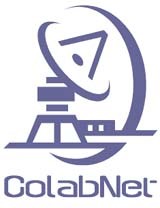-
StatusCompleted
-
Status date2014-12-09
The objective of the CollaBOD project is to refine and expand its technology for the web-based scheduling and management of shared bandwidth resources. Building upon technology developed for user-based scheduling of bandwidth-on-demand satellite services (and as currently deployed in Canada's Smart Community Program), Colabnet seeks to expand the technology into a full commercially deployable resource and service management tool for bandwidth on demand service deployments.
Meeting this objective will require the expansion of the scheduling and management facilities to accommodate not only the satellite resources, but also the user facilities and terminal equipment, allowing user organizations to schedule and manage all aspects of satellite-based service delivery. The expanded product will also support rapid adaptation to multiple Network Management Systems (the current version is being built to support the MIDAS technology from Comtech/EF Data), as well as integrating with other related management systems, such as video conferencing bridge and gateway facilities.
The core issue that the CollaBOD product is intended to address is the need to be able to provide end-users with the ability to schedule and manage their network resources in a distributed bandwidth-on-demand environment. To be able to fully exploit the advantages of bandwidth-on-demand technology to deliver cost-effective network services, user groups need a way to quickly customize the service to their needs while providing end-users and support staff with tools to effectively utilize and manage the service.
The primary benefits that will be provided by the CollaBOD system include:
- a web-based software installation and updating system that will install and maintain the end-user application on the users workstation
- an SNMP-based connection model to the satellite NMS, making the product adaptable to multiple vendors bandwidth-on-demand technologies as well as allowing the system to manage multiple NMS's concurrently
- the ability to schedule and manage all the elements required to deliver a service to the end consumer, including the satellite facilities, end terminal equipment, and the physical facilities in which the service will be delivered
- a scalable and extensible application architecture (based on Java technology from Sun Microsystems) that will allow the application to adapt to new satellite and network technologies as they emerge
- a robust management and reporting system, with a flexible web-based reporting system (XML-based)
The current implementation of the CollaBOD system functions primarily as a web-based scheduling and booking facility for the Comtech EF Data Multimedia Integrated Digital Access System (MIDAS) system. This project seeks to define, design and implement a series of enhancements to the basic product model to provide enhanced functionality, with the enhancements to include:
- Automated System Configuration: Tools and utilities to manage many of the common NMS set-up and configuration tasks (such as initializing circuit definitions in a multi-site network).
- Agents for Session Monitoring: The provision of intelligent agents to monitor system and session performance with logging and notification of appropriate user and technical staff through multiple channels, e.g. email, SMS.
- Emergency Session Activation: The ability to quickly initiate an emergency connection between sites (overriding other user sessions if needed). Past projects in emergency medicine have shown this to be a critical feature to support emergency applications in a Bandwidth on Demand environment.
- Device and Resource Management: The current version of CollaBOD works on an endpoint basis only (one per site). An expanded model is needed to be able to support multiple end-points in a community, as well as extending the facilities model to providing scheduling and management for user terminal equipment (e.g. video conference systems).
- A Flexible NMS Linkage: While the current system is focused on the MIDAS NMS, there are a number of other bandwidth on demand technologies that the product could be extended to support, and the basic communications engine in the product was designed with this extension in mind.
- Video Conferencing Integration (H.323/H.320): Given that H.323 IP-based videoconferencing is a core application in many bandwidth on deman
Under the current project plan the CollaBOD project will go through three specific phases:
- Phase One - Specification: This phase will see the definition of the Functional Requirements for the expanded product as well as the development of a System Design to guide the development process and a Test Plan to guide the pilot testing of the product.
- Phase Two - Development: This will see the development and integration testing of the product using an iterative prototyping process. Two prototype and test cycles are planned.
- Phase Three - Pilot Testing: This phase will see the live testing of the product in an operational environment, in conjunction with Telesat Canada.
To date the project team has completed the second and final Prototype Version of the CollaBOD application, incorporating the comments from testing of the initial version as well as significant enhancements in functionality.
The project team has completed the planning and deployment process for the field-testing of the product, with the most recent version of the CollaBOD deployed at Telesat Canada. The system is deployed to manage satellite facilities in thirteen remote Canadian communities under the SmartLabrador Project, supporting multiple connection points in each community.
Field testing of the product ran through April 30th, 2004, with a number of adjustments made during the process to reflect user feedback and trial performance. During the testing process over 130 sessions were booked and managed through the system The updated version of the CollaBOD technology is now in production with SmartLabrador, and Colabnet has actively started to market the product as well as seeking additional satellite technology partners to integrate the technology with.
The Final Review was successfully completed on June 10th, 2004, marking the formal end to the project.



